
Main Page
Alphabetical Menu
Chronological Menu
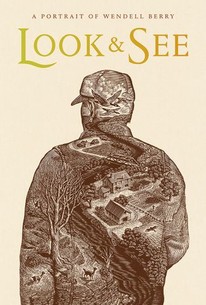 Look & See: A Portrait of Wendell Berry, co-directed by Laura Dunn and Jef Sewell, is an unfocused doc that bites off more than it can chew. Its title is a but of a misnomer because you don't really learn much that's insightful about Wendell Berry himself except for hearing some of his lyrical writing read aloud and you get a readers' digest glimpse of his activism regarding farming and nature. Small farmers in Kansas discuss their struggles and how farming had evolved throughout the years, but those messages become redundant. Beautiful images of nature also feel repetitive after a while: yes, they're breathtaking to look at at first, but that sensation wanes as the film progresses. The beginning of the film doesn't have much of a hook because you're still asking, "Who is Wendell Berry and what makes him so significant to be the subject of a documentary?" Perhaps the filmmakers assumed that audiences are already familiar with his work. To be fair, the filmmakers weren't able to get an interview with Wendell Berry himself, so they do the best they can with interviews with his family members and farmers from his rural hometown Kansas. Environment-related issues have been explored much more profoundly, thoroughly, and entertainingly in superior docs like Food, Inc, though, so it's too bad that Look & See is so poorly edited, underwhelming, and dull. It opens via Two Birds Films at IFC Center.
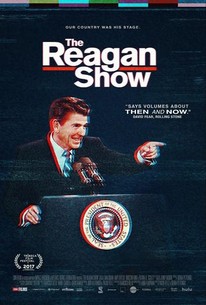
The Reagan Show, directed by Sierra Pettengill and Pacho Velez, uses archival footage showing how former President Ronald Reagan was known as The Great Communicator. To viewers who watch his speeches and interviews, he displayed his warmth, charm, and witty quips. He had no shame in repeating the Russian proverb "Doveryai, no proveryai" meaning "Trust, but verify" over and over throughout his career. When Reagan used the slogan "Let's make America great again!", it's hard not to think about how Donald Trump used it for his own campaign. Most tellingly, though, is how Reagan says in an interview at the very beginning of the doc that he can't imagine how someone can be President of the Unites States without having prior experience as an actor. Sociopsychologist Irving Goffman once wisely observed that life is like theater with a script, costumes, and so on. Reagan seemed to understand that when the cameras were rolling Everyone acts differently "behind the curtain," though. The Reagan Show provides you with a peak just before Reagan was preparing to go onstage in front of that curtain. By not using narration or talking heads to comment on what you're watching, the filmmakers wisely step back and let audiences use their own critical thinking to decide what to make of the footage. Most importantly, The Reagan Show doesn't take any sides; it humanizes Reagan, although not as profoundly as Hillary Clinton was humanized in last year's underrated doc Clinton, Inc.. Perhaps this doc could serve as a lesson to some audience members who are too easily charmed by politicians and make them wonder what the President might be truly like when he's not putting on a performance in front of the camera. At brief running time of 1 hour and 15 minutes, The Reagan Show is a refreshingly amusing, unbiased, and captivating documentary. It opens at The Metrograph via Gravitas Ventures and CNN Films.
13 Minutes 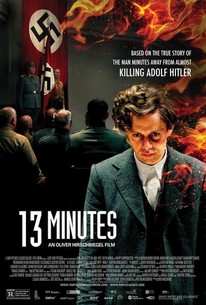 On November 8th, 1939, Georg Elser (Christian Friedel), a carpenter, plants a bomb at Munich Bürgerbräukeller, a beer hall, to attempt assassinate Hitler while he gives an anniversary speech. The bomb goes off killing 7 people, but it doesn't kill Hitler. Guards arrest him at the Swiss border and send him to be interrogated at a German police station by Arthur Nebe (Burghart Klaussner) and Heinrich Mueller (Johann von Buelow). They torture him in hopes of finding out who helped him to plan the bombing and to build the bomb. 13 Minutes begins with a gripping scene of Georg Elser carefully planting the bomb at the beer hall. Once he gets captured, though, the film's momentum takes a bit of a nosedive as the screenplay by Fred and Léonie-Claire Breinersdorfer becomes increasingly pedestrian and monotonous with clunky exposition and flashbacks. It's as though the writers were just going through the motions to get from Plot Point A to Plot Point B without letting the film breathe and grounding it in humanism. You never really feel like you're getting inside Elser's head or anyone's head for that matter even though you do learn about the relationship he had with his parents through the flashbacks. As Roger Ebert once wisely observed, what a movie's plot is about isn't as important as how it goes about its plot.
The modicum of poignancy and depth comes from the strong performance, not the screenplay. Moreover, the scenes of torture leave nothing to the imagination and will make audiences squeamish, but showing too much suffering and blood 'n guts so explicity for so long makes for a rather overwhelming and shocking experience. A slight trimming of the torture scenes and a great trust in the audience's imagination would've made it much more powerful. Also, the screenplay lacks levity, so its heaviness becomes quite exhausting by the 1-hour mark. Even Schindler's List had some comic relief to counterbalance the dark subject matter. With a more organic and sensitive screenplay, 13 Minutes could have been much more engrossing and haunting.
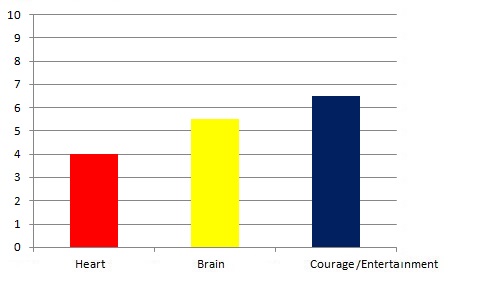 Marie Curie 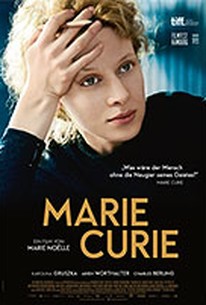 Marie Curie (Karolina Gruszka) and her husband, Pierre (Charles Berling), received the Nobel Prize for Physics in 1903. Pierre, who was also her research partner, died in a tragic accident leaving her with research that she had to complete on her own and with their two children to take care of. She continued to do research while developing a forbidden romance with Paul Langevin (Arieh Worthalter), a married scientist, which became a scandal just when she was about to receive a Nobel Prize for Chemistry in 1911. Karolina Gruszka gives a bravura, tour de force performance as Marie Curie. She manages to find the emotional truth of her role while opening window into the character's soul. That window, so-to-speak, would not have existed were it not for the well-written, sensitive screenplay by writer/director Marie Noelle and Andrew Stroll which remains in humanism, a truly special effect, from start to finish. Bravo to them for not overstuffing the film with every stage of Marie Curie's life; they focus on Marie Curie during her adult life, on her human relationships, and on her psychological state of mind, although you do get a bit of a glimpse of her brilliant mind at work. It's interesting to observe how the filmmakers trust the audience's imagination by not showing certain crucial scenes, i.e. the death of Pierre. In other words, you experience his death from Marie's perspective and remain engrossed by the emotional grittiness instead of being shocked by physical violence.
Part of what makes Marie's character so compelling and even inspirational is her perservance after her husband dies. You do get to see her going through the process of grieving and suffering, but she doesn't let that get in the way of her passion for science. Not only does she learn to overcome her grief, she also learns to stand her ground and to fight for her rights as a woman in a male-dominated field. Not only did she want to be treated and recognized fairly as a woman, but also for her husband to be recognized equally without him being excluded. She's a true "Wonder Woman." That doesn't mean that she's not fallible, though, especially when it comes to engaging in a relationship with colleague who's still married, but that doesn't make her any more or less likable; she's just a fallible human being who follows her heart's desire. Everyone can relate to that in some way. The exquisite cinematography and stylish editing help to enrich the film even further while make it more cinematic and atmospheric concurrently. The pace moves briskly; this is by no means a slow-burning or lethargic biopic. Every scene feels vibrant. One caveat, though, is that the use of split screen during one scene goes a bit too stylistically and takes away from the realism, but, fortunately, it's a very minor, ephemeral, and forgivable flaw. Much of the visuals look haunting, symbolic and breathtaking without being pretentious. At an ideal running time of 1 hour and 40 minutes, Marie Curie, is mesmerizing, heartfelt and powerful with an Oscar-worthy performance by Karolina Gruszka. It's one of the best films of the year.
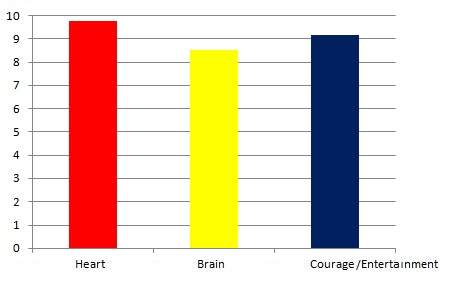 The Little Hours 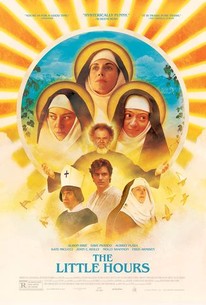
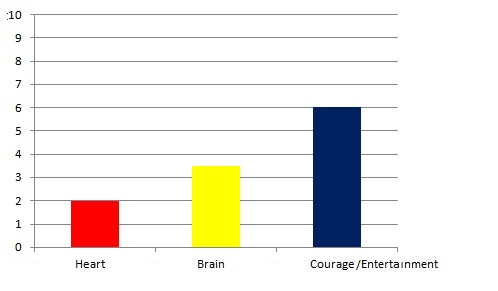 Main Page Alphabetical Menu Chronological Menu ______________________________________________________ |
The NYC Movie Guru
themovieguru101@yahoo.com
Privacy Policy